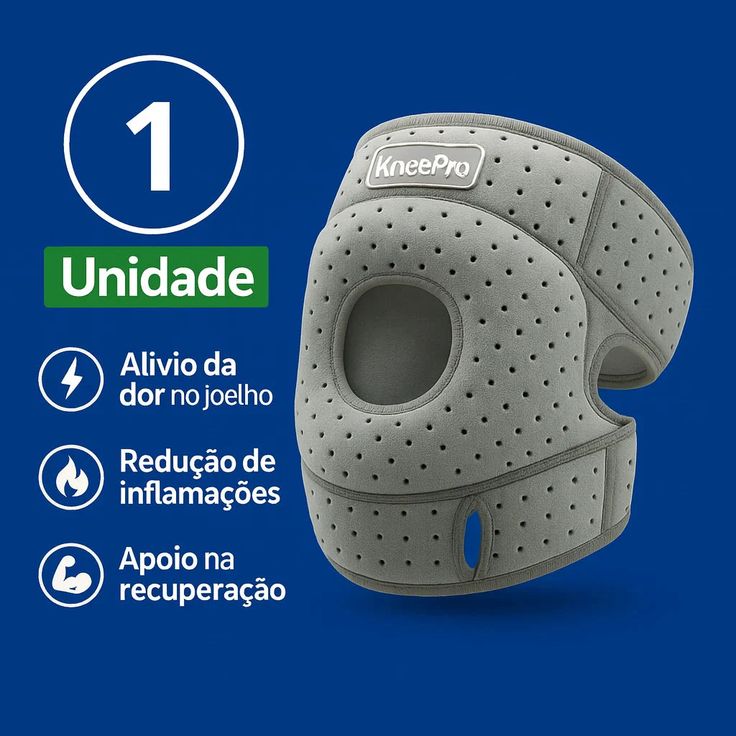Whey Protein e Musculação: Como Maximizar Seus Resultados, A proteína whey é como uma arma secreta para frequentadores de academia e entusiastas do fitness. Se você leva a sério os resultados, este suplemento pode realmente ajudar. Não se trata apenas de ganhar massa muscular; trata-se de nutrição inteligente.
Neste artigo, vamos detalhar tudo o que você precisa saber sobre a proteína whey, desde o momento da ingestão até as armadilhas comuns e a escolha do tipo certo para seus objetivos. Vamos colocá-lo no caminho certo para maximizar essas sessões de academia.
Key Takeaways
Whey Protein e Musculação: Como Maximizar Seus Resultados
- Whey protein is a fast-absorbing protein derived from milk, packed with essential amino acids.
- Timing your whey intake around workouts can boost energy, recovery, and muscle growth.
- Incorporate whey into a balanced diet, combining it with other nutrients for best results.
- Avoid common mistakes like overconsumption and neglecting hydration.
- Different fitness goals require different whey protein strategies.
Understanding Whey Protein and Its Benefits
What is Whey Protein?
A proteína whey é uma proteína de alta qualidade derivada do subproduto líquido da produção de queijo, conhecido como soro de leite. Esta proteína é repleta de aminoácidos essenciais, que são os blocos de construção dos músculos.
O processo de produção da proteína whey envolve a filtragem de componentes indesejados como lactose, gordura e carboidratos, deixando para trás um suplemento rico em proteínas. Ela está disponível em várias formas, incluindo concentrado, isolado e hidrolisado, cada um com níveis variados de conteúdo de proteína e taxas de absorção.
Nutritional Composition of Whey Protein
A proteína whey é famosa por seu perfil completo de aminoácidos, que inclui uma alta concentração de aminoácidos de cadeia ramificada (BCAAs) como leucina, isoleucina e valina. Esses BCAAs são particularmente benéficos para o crescimento e recuperação muscular.
O perfil nutricional da proteína whey também ostenta um alto valor biológico, o que significa que é usada de forma eficiente pelo corpo. Normalmente, uma porção de proteína whey contém cerca de 20-30 gramas de proteína, com o mínimo de gorduras e carboidratos.
Health Benefits Beyond Muscle Building
Embora frequentemente associada à construção muscular, a proteína whey oferece vários outros benefícios à saúde. Ela auxilia no controle de peso aumentando a sensação de saciedade e reduzindo a ingestão geral de calorias. Além disso, a proteína whey auxilia na função imunológica, ajuda a controlar os níveis de açúcar no sangue e pode até reduzir a inflamação.
A ingestão regular também pode promover a saúde cardíaca, reduzindo a pressão arterial e melhorando os níveis de colesterol. Esses benefícios tornam a proteína whey uma adição valiosa a uma dieta balanceada, apoiando o bem-estar geral.
Timing Your Whey Protein Intake for Maximum Results

Whey Protein e Musculação: Como Maximizar Seus Resultados
Pre-Workout: Boosting Energy and Reducing Catabolism
Tomar whey protein antes do treino pode mudar o jogo. Quando consumido de 30 a 45 minutos antes de ir à academia, ele ajuda a prevenir a quebra muscular, também conhecida como catabolismo, fornecendo ao seu corpo aminoácidos essenciais.
Combiná-lo com um carboidrato de digestão rápida, como uma banana ou uma bebida esportiva, pode lhe dar um impulso de energia, garantindo que você tenha o combustível necessário para uma sessão de treino sólida.
Post-Workout: Enhancing Recovery and Hypertrophy
The post-workout window is arguably the most critical time for whey protein consumption. After exercising, your muscles are hungry for nutrients. Whey protein’s quick absorption makes it perfect for this time, supplying your muscles with the amino acids they need to repair and grow. Consuming 20 to 30 grams of whey protein within 40 minutes post-exercise can significantly enhance muscle recovery and promote hypertrophy.
Morning Intake: Preventing Muscle Loss
After a night of fasting during sleep, your body might start breaking down muscle tissue for energy. Having whey protein first thing in the morning can halt this process. It supplies the amino acids your body needs to shift from a catabolic state to an anabolic one, supporting muscle maintenance and growth.
Regularly timing your whey protein intake can make a noticeable difference in your fitness journey. By strategically consuming whey at these key moments, you can optimize muscle growth and recovery, ensuring you’re getting the most out of your workouts.
Incorporating Whey Protein into Your Diet
Combining Whey with Other Protein Sources
When adding whey protein to your diet, it’s smart to mix it up with other protein sources. Whey isn’t your only option. You can pair it with eggs, lean meats, and legumes to make sure you’re getting a full range of nutrients. This combination helps you get a balanced diet, providing all the essential amino acids your body needs.
Pairing Whey with Carbohydrates
For better absorption, try having whey protein with some fast-digesting carbs. Think fruits or sports drinks. This pairing not only helps refill your muscle glycogen stores but also boosts insulin release, which aids in getting those amino acids into your muscles. It’s a simple trick to decrease chronic inflammation markers and enhance recovery.
Balancing Whey Protein with Whole Foods
Don’t let whey protein take over your diet. It’s a supplement, not a replacement for real food. Balance it out with whole foods like veggies, grains, and healthy fats to keep your diet well-rounded. A balanced diet supports overall health and ensures you’re not missing out on important nutrients.
Regularly incorporating whey protein into your diet can be a game-changer for your fitness goals, but remember, consistency is key. Make it a part of your routine, not just an occasional boost, and you’ll start seeing results.
Common Mistakes to Avoid with Whey Protein
Overconsumption and Its Risks
Let’s face it, more isn’t always better. Overdoing whey protein can actually backfire. Sure, it’s tempting to think that doubling up will speed up muscle gains, but your body can only process so much at a time. Overconsumption can lead to kidney strain and other health issues. Stick to recommended servings based on your weight and fitness goals.
Neglecting Hydration
When you’re upping your protein intake, water is your best friend. Protein metabolism requires water, and neglecting hydration can lead to dehydration and kidney stress. Make sure you’re drinking enough water throughout the day, especially if you’re sweating it out in the gym.
Ignoring Dietary Balance
Whey protein is a great supplement, but it’s not a magic bullet. Balance is key. Relying solely on whey for your protein needs can mean missing out on other essential nutrients. Incorporate a variety of protein sources like lean meats, beans, and legumes to ensure a well-rounded diet.
Remember, whey protein is a supplement, not a substitute for a balanced diet. Integrating it wisely with other foods and maintaining proper hydration will help you get the most out of your fitness journey.
Whey Protein for Different Fitness Goals
Building Muscle Mass
Quando se trata de proteína whey , a construção de massa muscular é um dos seus usos mais celebrados. Este suplemento é repleto de aminoácidos essenciais, que são os blocos de construção que seus músculos precisam para crescer. A ingestão consistente de proteína whey, combinada com treinamento de força, pode aumentar significativamente a hipertrofia muscular.
É como dar aos seus músculos a receita perfeita para o crescimento. Muitas pessoas acham que incorporar whey em sua rotina pós-treino as ajuda a se recuperar mais rápido e a construir músculos de forma mais eficiente.
Aiding in Weight Loss and Definition
A proteína whey não serve apenas para aumentar o volume; também é uma ótima aliada na perda de peso e definição muscular. Ela ajuda a manter a massa muscular enquanto você está eliminando gordura, o que é crucial para obter uma aparência tonificada.
Além disso, é baixa em calorias e rica em proteínas, o que a torna uma excelente escolha para aqueles com déficit calórico. Ao aumentar sua ingestão de proteínas, você pode manter seus músculos intactos enquanto busca aquele físico magro.
Supporting Overall Health and Wellness
Além da estética, a proteína whey desempenha um papel na saúde e bem-estar geral. Não se trata apenas de músculos; este suplemento pode ajudar a impulsionar seu sistema imunológico e melhorar a capacidade do seu corpo de se reparar.
As proteínas e aminoácidos de alta qualidade no whey podem ajudar a reduzir a inflamação e até mesmo apoiar a saúde do coração. É uma adição versátil a qualquer dieta, seja você um atleta ou apenas alguém que busca melhorar seu bem-estar.
Incorporating whey protein into your routine can be a game-changer, whether your goal is to build muscle, lose weight, or simply feel healthier. It’s about finding the right balance and making sure it complements your lifestyle and fitness goals.
The Science Behind Whey Protein and Muscle Growth

Whey Protein e Musculação: Como Maximizar Seus Resultados
Role of Amino Acids in Muscle Synthesis
A proteína whey é repleta de aminoácidos essenciais, especialmente aminoácidos de cadeia ramificada (BCAAs), que desempenham um papel crucial na síntese muscular.
Os aminoácidos são os blocos de construção da proteína e auxiliam no reparo e crescimento dos tecidos musculares. Quando você consome proteína whey, está essencialmente dando aos seus músculos as ferramentas de que eles precisam para se reconstruir mais fortes após um treino.
Impact on Muscle Recovery
After a grueling workout, your muscles are like sponges, ready to absorb nutrients. Whey protein helps speed up recovery by providing readily available nutrients that repair damaged muscle fibers. This means less soreness and quicker turnaround between workouts, so you can hit the gym again sooner and with more intensity.
Influence on Strength and Endurance
A ingestão consistente de proteína de soro de leite pode aumentar sua força e resistência ao longo do tempo. Os aminoácidos de alta qualidade no soro de leite apoiam o reparo e o crescimento muscular, o que por sua vez melhora seu desempenho geral.
A suplementação regular , combinada com treinamento de resistência, pode levar a melhorias perceptíveis em quanto peso você pode levantar e por quanto tempo você pode sustentar a atividade física.
It’s fascinating how a simple supplement like whey protein can make such a difference in muscle growth and recovery. It’s not just about building muscle; it’s about maintaining and improving your overall fitness and health.
Choosing the Right Whey Protein Supplement
Types of Whey Protein: Concentrate, Isolate, and Hydrolysate
Picking the right whey protein can feel like a maze, but breaking it down helps. Whey protein comes in three main types: concentrate, isolate, and hydrolysate. Each has its own perks and quirks.
- Whey Concentrate: This is your budget-friendly option. It’s got a bit of everything – protein, fats, and carbs. It’s not super refined, which means it still has some of the good stuff from milk.
- Whey Isolate: This is a step up in purity. Most of the fats and carbs are stripped away, leaving a higher protein content. Great for those watching their calorie intake or dealing with lactose issues.
- Whey Hydrolysate: Think of this as pre-digested protein. It’s broken down for quicker absorption, making it ideal for those with sensitive stomachs. However, it can be pricier and not as tasty.
Factors to Consider When Selecting a Product
When you’re in the market for whey protein, don’t just grab the first tub you see. Here are some things to think about:
- Protein Content: Check how much protein you’re actually getting per serving. More is usually better, but balance it with your needs.
- Amino Acid Profile: Look for a product rich in essential amino acids, especially BCAAs, which are crucial for muscle building.
- Additives: Less is more. Avoid products with a long list of additives, sweeteners, or fillers.
- Brand Reputation: Stick to brands known for quality. A quick online search can reveal a lot about a brand’s reliability.
Reading Labels and Understanding Ingredients
Reading a supplement label can be like deciphering a foreign language. Here’s a quick guide:
- Serving Size: Don’t just look at the total protein; see how much you get per scoop.
- Ingredients List: The fewer, the better. Watch out for unnecessary extras.
- Allergen Information: If you have allergies, double-check this section.
Selecting the right whey protein isn’t just about the protein content—it’s about finding a product that fits your lifestyle and dietary needs. Take the time to read labels and understand what you’re putting into your body.
Conclusion
No final, se você leva a sério a ideia de aproveitar ao máximo seus treinos, a proteína whey pode mudar o jogo. Não se trata apenas de tomar um shake depois de levantar pesos; trata-se de tempo, consistência e torná-la parte de uma dieta balanceada. Use-a corretamente e você verá melhorias no crescimento muscular, recuperação e composição corporal geral.
Mas lembre-se, é um suplemento, não uma poção mágica. Combine-a com uma boa nutrição e exercícios regulares e você estará no caminho para melhores resultados. Mantenha a simplicidade, mantenha-se comprometido e veja seus esforços valerem a pena.
Frequently Asked Questions
What is whey protein?
Whey protein is a type of protein that comes from milk. It’s made during the process of turning milk into cheese. This protein is popular because it’s easy for the body to absorb and is great for helping muscles grow.
When should I take whey protein for the best results?
For the best results, take whey protein right after your workout. This helps your muscles recover faster. You can also take it in the morning to stop muscle loss or before exercise to boost your energy.
Can whey protein help with weight loss?
Yes, whey protein can help with weight loss. It keeps you feeling full, which can stop you from eating too much. It also helps you keep your muscles while losing fat, making it easier to stay fit.
Existe algum risco em tomar muita proteína de soro de leite?
Taking too much whey protein can cause problems like upset stomach, cramps, or more serious issues like kidney strain. It’s important to follow the recommended amounts and not overdo it.
How do I choose the right whey protein supplement?
To choose the right whey protein, look for products with few ingredients and no added sugars. Decide if you want concentrate, isolate, or hydrolysate, based on your needs. Reading labels can help you make the best choice.
Can I mix whey protein with other foods?
Sim, você pode misturar whey protein com outros alimentos. É ótimo em smoothies, com leite ou até mesmo em aveia. Misturá-lo com carboidratos como frutas também pode ajudar seu corpo a usar melhor a proteína. Whey Protein e Musculação: Como Maximizar Seus Resultados. Veja mais artigos nosite.











